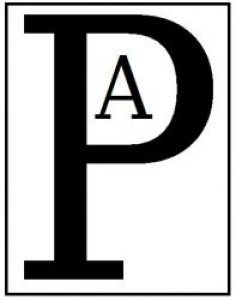
Last month, the German Federal Cartel Office (FCO) moved its proceeding concerning the German football league’s “50+1” rule to a different Decision Division. As a result, allegations of bias against the previous case handlers became redundant. A good opportunity to blog about bias in antitrust cases.
An unbiased, neutral, and objective judge is one of the main pillars of a democratic society. This is not only true for judges, but also expected from other public institutions and their members. As our readers know from previous posts, the football sector is a hot topic with many competition authorities these days. But nevertheless, allegations of bias are rare – although not unseen – in antitrust.
Bias and the 50+1 case
The 50+1 case is not only widely discussed amongst football fans, but also became very interesting to everyone attentive to procedural rules. The case itself is about the so-called “50+1 rule” in German football. This rule prevents external investors from taking over a controlling or a majority stake in football clubs, as the majority of the voting rights (50+1) has to stay with the club members. The FCO is currently investigating whether this rule and its exceptions for some clubs comply with competition law (for more information about the case, check out our previous post).
HAM International Limited, a company owned by the investor Hassan Ismaik, who is invested in Munich football club TSV 1860 München (yes there are other football clubs than Bayern in Munich) and admitted to the proceeding, raised allegations of bias against the case handlers in 2023, causing a delay in the decision-making process. The allegations concerned the fact that one of the case handlers is an active board member of a football fan club and had voiced a strong opinion in favor of the 50+1 rule in this position.
The FCO is currently restructuring internally for organizational purposes. As a result, the FCO moved the case to the 6th Decision Division, which is generally dealing with sport and media. This in turn resolves the allegations of bias. Although at first glance this might look like a handy coincidence, the move seems to have merit. The 6th Decision Division is already familiar with football topics, having recently also dealt with the assessment of the sale of the media rights to football matches.
Allegations of bias were also made against one member of the 6th Decision Division. However, the FCO stated that after “an extensive internal investigation […] these allegations were unfounded”. The case handler will therefore continue to be involved in the proceedings.
Bias in the truck cartel – a recurring topic
A motion for bias is also not unheard of in other antitrust cases. One example are the follow-on actions concerning the so-called truck cartel. Interestingly, in these proceedings, two motions against judges were sustained:
- In 2021, one judge of the Regional Court of Frankfurt was ultimately excluded from the case by the German Federal Court of Justice (BGH) due to the judge’s professional “upbringing”. A year earlier, the judge in question was still doing his legal clerkship and during this time he was part of the team advising one of the alleged cartelists in the cartel proceedings. The judge himself raised the issue at the beginning of the proceedings. So, the motion for bias might not have come as a surprise.
- A year later in 2022, two judges of the Regional Court of Stuttgart were found biased by the Higher Regional Court and were therefore excluded from truck cartel cases. What makes this case special is that the bias was not so much about the judges themselves but about their wives/partners. Both worked in high positions at Daimler and Daimler Truck, one of them in the Tax Compliance Department and one at HR. The court found that this could lead to a conflict of interest.
The European Commission – A bias-free zone?
Cases about motions for bias regarding the European Commission appear to be rarer. In the past, a number of decisions of the Commission were challenged because some of its members (supposedly) gave press statements regarding not yet decided cases. None of them were successful.
The probably most famous case is United Brands from 1978, in which the applicant claimed that it had suffered moral damages due to a denigrating comment to a newspaper by an official of the Commission before the parties had delivered their defenses, causing the Commission to no longer being able to evaluate the facts impartially. The claim was rejected because the court found that there was nothing on the court´s file to justify the presumption that the contested decision would not have been adopted or would have been different without the (regrettable) statements.
While bias might not have played such a big role in Commission cases, there have been more recent discussions on the somewhat related topic of “revolving doors”, where Commission officials moved into private practice. More on that in our post here.
Outlook
Due to the importance of an even playing field for legal disputes, the topic of bias will remain present in antitrust (and other) cases. Motions for bias against judges might also be used as a procedural tactic to delay a decision.
Regarding the 50+1 case, while a bit off topic for this post, the FCO stated that it will now review the case in the light of the latest EU case law on the relation between sports association rules and competition law. Therefore, this topic might be worth another post in the future…
Photo by Kind and Curious on Unsplash
